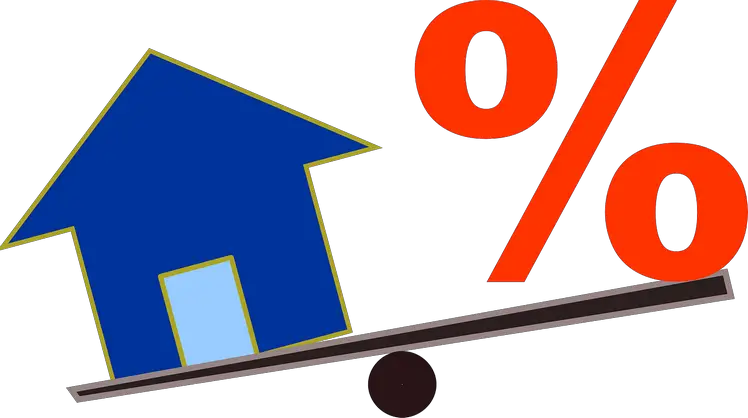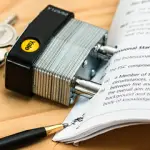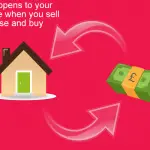
You may have a house with a loan secured on it and need to sell. If you do, it’s important to understand what this means, as the lender has a say about what happens with the proceeds from the sale of your house.
You can put your house up for sale with a loan secured on it. But on the day your sale completes the lender must be repaid in full. Any lender with a loan secured on your house, including a mortgage, will have their charged registered to prevent you selling it without first repaying their loan.
Selling property when in debt secured on your home
Most homeowners have a loan secured on their home. This is normally referred to as a mortgage. But there are many homeowners who borrow more money and secure this new lending against the value of their home too. This is referred to as a second charge or a second mortgage. Second charges are also known as junior liens too. In this case a lien is a claim or legal right the lender has against the property, which has been used as collateral to satisfy the debt.
Effectively, the second charge piggybacks off the first charge. But the first registered charge has first right of payment when the house is sold. This is why in most cases the interest rate on second charge loans are higher than first charge loans or mortgages.
This is best explained by way of an example:
Mr and Mrs Smith have a house that is worth £250,000 and would like to sell. A few years back they had large credit card debts, which they paid off by converting what they owed to the credit card companies into a £35,000 loan secured by way of a second charge on their home. They already had a mortgage on their home and the outstanding mortgage currently stands at £195,000. The additional secured loan has been part paid and the remaining balance is £30,000. The remaining equity in their house is as follows.
Example of selling a property with secured debt
| House value | £250,000 |
|---|---|
| Less: | |
| Mortgage with a first charge | £195,000 |
| Bank loan with a second charge | £ 30,000 |
| __________ | |
| Net equity when sold* | £ 25,000 |
| __________ |
What happens if the loan secured on your house exceeds the equity?
If you need to sell your house when you have a loan secured on it, but the secured loan exceeds the equity you have in the property, this is more tricky. If the debts you have secured on your home exceed the value of the house, this is what’s known as negative equity.
This is better explained by way of an example.
Can you sell a house if the loan secured on it exceeds the equity?
Mr and Mrs Jones have a house that was worth £250,000 they would like to sell. But due to ongoing financial problems their home has fallen into a poor state of repair. The Jones have recently asked for an estate agent to value their home so they can sell it. The estate agent valued their house at £215,000 and informed the Jones their house needed quite a bit spending on it.
To compound their wows, a few years back the Jones had large credit card debts, which they paid off by converting what they owed to the credit card companies into a £35,000 loan secured by way of a second charge on their home. They already had a mortgage on their home and the outstanding mortgage currently stands at £197,000. The additional secured loan has been part paid leaving a remaining balance of £32,000. The negative equity on their house is as follows.
Example of selling a property with secured debt in negative equity
| House value | £215,000 |
|---|---|
| Less: | |
| Mortgage with a first charge | £197,000 |
| Bank loan with a second charge | £ 32,000 |
| __________ | |
| Negative equity when sold* | (£ 14,000) |
| __________ |
What happens if you sell your house for less than you owe?
If you try to sell your house for less than what you owe your mortgage company can block a sale. This is because the mortgage company have a registered charge over your property, which is there to prevent you from selling your house without repaying the mortgage.
Which of course if the house is sold for less that what’s owed, this will mean the mortgage won’t be able to be repaid in full.
Options to sell a house with a loan secured on it when you have negative equity
- If you have savings you can use these to pay down the secured debt.
- Speak with the secured lender to see if they will consider changing the remaining balance to an unsecured loan. Possible, but unlikely. But on the other hand, it might be the secured loan could be part-paid from the proceeds of the sale. The lender may be happy to convert the remaining secured loan into an unsecured loan at a higher rate of interest. Once again possible, but unlikely.
- Borrow on an unsecured loan to repay the secured debt. But be aware unsecured debt usually carries a higher interest rate. Also, only borrow what you can afford to repay.
- Ask for help from friends and family. But be careful with this option and make sure to enter into an agreement to protect you and the person you borrowed from. But also, make sure you honour the debt and repay it, otherwise you’ll lose a friend or cause problems in the family.
- Transfer the debt to your next property. This option will be tricky if you are already in negative equity. But if you are selling to rent instead, this option is not available to you. But also, transferring debt from one property to another will often carry admin fees.
- Wait for the property market to pickup before selling the house. This will increase your home equity and give time for you to pay down the loan too. However, if you need to sell this isn’t an option at all.
- Rent a room in your house to help pay-down the loan to reduce your negative equity. Again, this option doesn’t work if you need to sell.
- Speak to us about how we can help resolve your secured loan problem. If the above examples correctly describe your situation and you intend to move into rented accommodation or similar, this is the perfect scenario for us to help you. Please use our contact us page for a no obligation chat. If you have to move, but you feel stuck, please don’t hesitate to contact us.
Additional options if you have a secured loan but you’re not in negative equity
One further option to clear-down your additional secured loan is to increase the mortgage on your new home. The additional mortgage can be used to repay the secured loan. As already explained, second charge loans normally carry a higher interest rate. Which means if you take out a larger first-charge mortgage, your monthly repayments should be lower.
But make sure you only ever borrow what you can comfortably afford.
I hope you’ve enjoyed this article about can you sell your house if you have a loan secured on it
If you’ve enjoyed this article about “can you sell your house if you have a loan secured on it”. If you have please share it on your favourite social media site.
Also, if you have any questions, please feel free to comment below too. Please also share any of your experiences with properties you’ve bought. Alternatively, if you need more help, please feel free to contact us on our contact us page here. Or join the discussion and ask your question in the property forum.




